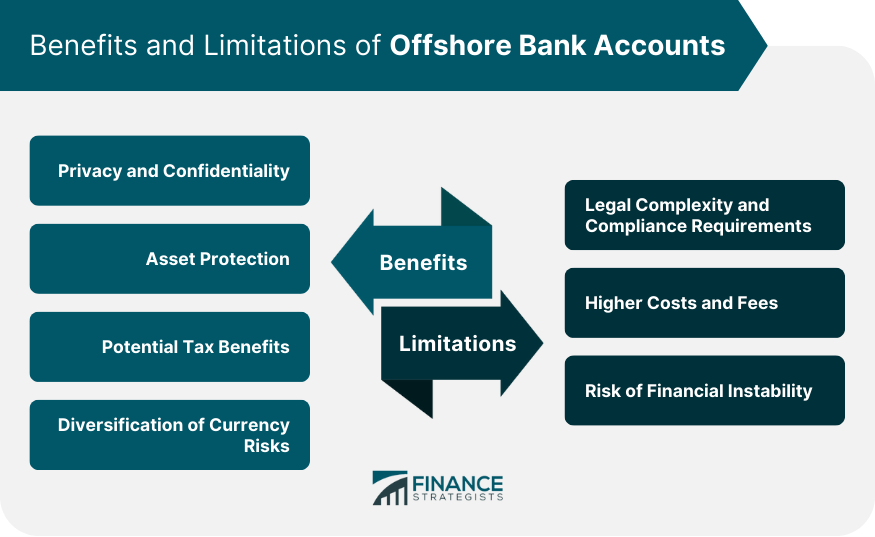Recognizing Offshore Company Formations: A Comprehensive Guide to the Refine and Benefits
Offshore firm formations offer a critical avenue for business owners seeking to maximize their business procedures. These entities frequently provide advantages such as tax advantages, increased privacy, and robust asset security. Recognizing the intricacies of choosing a territory, the development process, and compliance demands is crucial. As the landscape of international company evolves, the ramifications of developing an offshore business warrant cautious factor to consider. What steps should one require to browse this complicated surface?
What Is an Offshore Business?
An overseas firm is a service entity included outside the territory of its owners' home, frequently in a country with beneficial regulative and tax atmospheres. These firms can serve various purposes, consisting of asset protection, global trading, and wide range management. They are typically developed in territories referred to as tax havens, where company tax obligation rates are nonexistent or low, and privacy legislations are stringent.
Offshore companies may be had by individuals or other company entities and can operate in numerous sectors, including e-commerce, consulting, and finance. While they offer specific advantages, the legal and regulative frameworks controling offshore companies differ substantially by territory. Business owners must navigate these intricacies to assure conformity with both international and regional laws. Recognizing the framework and function of overseas business is crucial for people considering this choice for business procedures or possession management.
Benefits of Creating an Offshore Firm
While the decision to create an offshore company may originate from numerous calculated factors to consider, the prospective benefits are engaging for many local business owner. One significant advantage is tax obligation optimization; numerous offshore territories offer positive tax rates or perhaps tax exceptions, enabling companies to preserve more revenues. Furthermore, overseas companies usually provide boosted privacy defense, shielding the identities of investors and supervisors from public analysis.


Last but not least, local business owner might discover operational versatility, as offshore territories frequently have less regulative difficulties, allowing structured management and governance. Collectively, these advantages make offshore business formations an appealing alternative for many looking for to expand their service perspectives.
Selecting the Right Jurisdiction
Choosing the appropriate jurisdiction for an offshore firm is a crucial action in optimizing the benefits described previously. Numerous factors influence this decision, consisting of tax obligation policies, business regulations, and the overall company setting. Territories such as the British Virgin Islands, Cayman Islands, and Singapore are typically preferred for their desirable tax routines and durable lawful structures.
It is essential to think about the particular demands of business, such as personal privacy demands and regulative compliance. In addition, the simplicity of doing organization, consisting of the performance of business enrollment and financial facilities, plays a substantial duty.
Possible proprietors ought to additionally review the political stability and track record of the selected jurisdiction, as these elements can affect lasting success. Eventually, extensive research study and specialist examination are advised to assure placement with the company's goals and to utilize the full capacity of offshore advantages.

The Offshore Company Formation Process
The overseas firm development procedure includes a collection of necessary actions that require cautious planning and execution. At first, people or businesses have to select an appropriate territory that straightens with their objectives, thinking about aspects such as tax obligation advantages, privacy, and regulative setting. Following this, the next step requires choosing the appropriate business structure, such as an International Organization Company (IBC) or Minimal Liability Firm (LLC)
When the structure is figured out, essential files, including a service plan, recognition, and proof of address, have to be prepared. Involving a credible neighborhood representative or service provider can simplify this phase, making sure compliance with neighborhood laws. After sending the needed documentation to the appropriate authorities, the formation procedure commonly finishes in the issuance of a certificate of unification. This paper develops the firm as a lawful entity, allowing it to carry out business internationally.
Lawful Demands and Compliance
Recognizing the lawful requirements and conformity obligations is vital for anybody seeking to establish an overseas company. Each jurisdiction has particular regulations that must be stuck to, which can include company enrollment, obtaining required licenses, and maintaining regional addresses. Offshore Company Formations. It is vital to assign a signed up agent who can facilitate communication with local authorities and warranty compliance with continuous reporting needs
In addition, numerous jurisdictions require the submission of yearly monetary declarations, together with tax obligation filings, even if the company does not produce revenue. Directors and shareholders have to be determined, with due diligence treatments often mandated to verify their identities. Failing to meet these legal commitments can lead to penalties or the dissolution of the company. As a result, potential offshore business owners need to consult with attorneys experienced in international service law to navigate these complexities effectively and assure complete conformity with all policies.
Tax Ramifications of Offshore Firms
The tax obligation ramifications of overseas business existing substantial benefits that attract many entrepreneurs. Recognizing the associated compliance requirements is necessary for maneuvering the complexities of global tax laws. This section will certainly discover both the prospective advantages and the required commitments connected to offshore company frameworks.
Tax Obligation Benefits Summary
Although offshore companies are commonly watched with suspicion, they can offer substantial tax obligation benefits for businesses and individuals looking for to enhance their economic approaches. One of the key advantages is the potential for lower business tax rates, wikipedia reference which can lead to significant cost savings. Several overseas jurisdictions supply beneficial tax obligation regimes, consisting of zero or marginal tax obligation on earnings, capital gains, and inheritance. In addition, offshore firms can promote global company procedures by minimizing tax obligation responsibilities related to cross-border deals. This structure may likewise make it possible for tax deferral chances, permitting revenues to expand without prompt taxes. Ultimately, these advantages add to enhanced financial effectiveness and property protection, making offshore business an attractive option for smart capitalists and business owners.
Conformity Demands Described
Offshore firms may provide tax benefits, yet they additionally come with a set of conformity demands that must be thoroughly navigated. These entities go through certain reporting commitments, which vary significantly depending upon the territory. Generally, overseas business need to maintain accurate financial documents and send yearly economic declarations to abide with neighborhood laws. In addition, many jurisdictions call for the disclosure of valuable possession to battle cash laundering and tax obligation evasion. Failure to comply with these compliance actions can result in severe charges, consisting of penalties and possible loss of organization licenses. Understanding the local tax obligation regulations and global contracts is important, as they can impact tax obligations and general operational validity. Involving with legal and economic specialists is advisable to guarantee complete compliance.
Maintaining and Managing Your Offshore Company
Keeping and taking care of an offshore company involves sticking to different ongoing conformity demands crucial for lawful operation. This consists of thorough financial document keeping and an understanding of tax commitments pertinent to the firm's jurisdiction. Efficient administration not only assures regulative conformity however also sustains the company's financial health and wellness and long life.
Continuous Conformity Needs
Guaranteeing continuous conformity is essential for any kind of entity operating in the offshore industry, as failing to meet regulatory needs can lead to substantial penalties or even dissolution of the firm. Offshore companies have to abide by regional laws, which may include yearly filing of monetary declarations, payment of needed costs, and preserving an authorized workplace address. Additionally, business are frequently needed to assign a local agent or representative to promote interaction with authorities. Regular updates on modifications in regulation or tax requirements are necessary for compliance. Adherence to anti-money laundering (AML) and know-your-customer (KYC) policies is important. By preserving arranged documents and staying notified, offshore firms can guarantee they remain compliant and alleviate dangers connected with non-compliance.
Financial Record Maintaining
Reliable economic document maintaining is essential for the successful administration of any kind of offshore company. Preserving precise and in-depth monetary documents help in tracking the firm's efficiency, guaranteeing compliance with neighborhood laws, and helping with informed decision-making. Business must apply systematic procedures for documenting income, costs, and deals to create openness and liability. Making use of accountancy software program can enhance this procedure, enabling real-time economic evaluation and reporting. Consistently reviewing monetary declarations assists determine trends, assess success, and manage cash money circulation successfully. Additionally, it is vital to firmly store these records to secure delicate information and assurance simple accessibility during audits or financial testimonials. By focusing on precise monetary record maintaining, offshore firms can enhance operational performance and support lasting success.
Tax Obligations Summary
Understanding tax obligations is essential for the appropriate monitoring of an offshore business, as it directly affects financial performance and conformity. Offshore companies may be subject to numerous tax legislations depending on their jurisdiction, consisting of corporate tax obligations, value-added tax obligations, and withholding taxes. It is vital for local business owner to remain educated regarding their tax duties, as failing to abide can result in charges and lawful concerns. In addition, numerous offshore jurisdictions supply tax obligation incentives, which can substantially profit services if browsed appropriately. Engaging an experienced tax obligation advisor or accountant specializing in global tax obligation regulation can help guarantee that business satisfy their obligations while maximizing their tax techniques. Inevitably, diligent tax obligation monitoring adds to the total success and sustainability of an overseas entity.
Regularly Asked Concerns
Can I Open a Checking Account for My Offshore Company From Another Location?
The capacity to open a savings account for an overseas business from another location depends on the bank's policies and the jurisdiction's regulations. Several banks supply remote solutions, however particular requirements might vary significantly between establishments.
What Are the Expenses Associated With Creating an Offshore Business?
The expenses associated with developing an offshore company usually include enrollment fees, lawful and consulting costs, and continuous upkeep charges. These expenses vary substantially based on jurisdiction, intricacy of the organization framework, and certain services called for.
Are There Limitations on Who Can Be a Shareholder?
Limitations on investors differ by jurisdiction. Some this page nations may impose restrictions based on organization, citizenship, or residency kind - Offshore Company Formations. It's vital for potential financiers to study details policies applicable to their selected offshore area
How Lengthy Does the Offshore Business Formation Refine Usually Take?
The overseas company formation procedure usually takes in between a couple of days to numerous weeks. Aspects influencing the timeline consist of jurisdiction requirements, paper prep work, and responsiveness of relevant authorities involved in the registration process.
What Takes place if I Fail to Adhere To Local Legislations?
Failure to abide by regional legislations can lead to Continue extreme charges, consisting of penalties, lawful activity, or loss of business licenses - Offshore Company Formations. It may also damage the business's credibility and impede future company chances in the jurisdiction
An offshore company is a service entity integrated outside the territory of its owners' residence, commonly in a nation with desirable governing and tax obligation settings. One substantial benefit is tax obligation optimization; lots of offshore territories supply beneficial tax obligation prices or even tax obligation exceptions, enabling business to keep more profits. Overseas companies are commonly viewed with uncertainty, they can use considerable tax obligation benefits for people and organizations looking for to maximize their monetary methods. Furthermore, offshore firms can help with international service procedures by minimizing tax responsibilities linked with cross-border transactions. Offshore business might be subject to various tax obligation laws depending on their territory, including company tax obligations, value-added taxes, and withholding tax obligations.